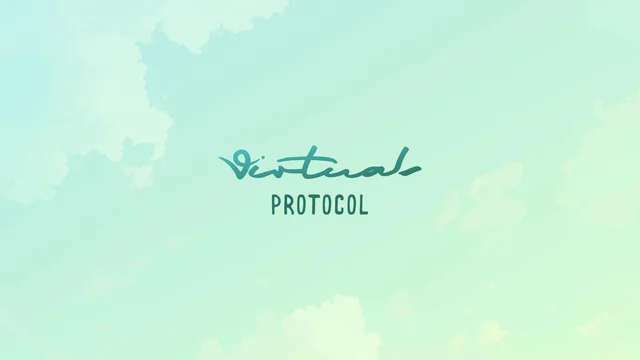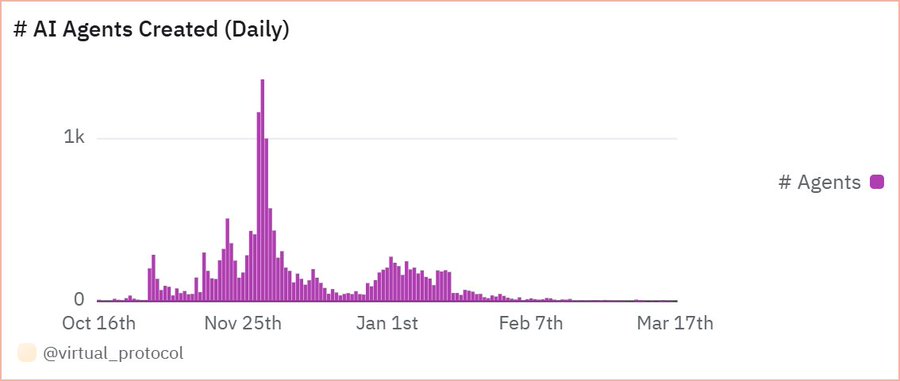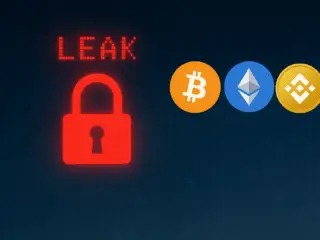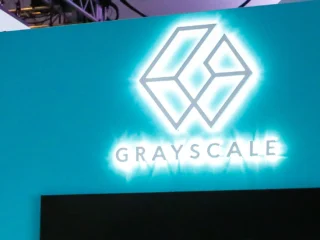
- Virtuals Protocol has introduced ACP to enable autonomous interactions between agents without human supervision.
- With ACP, agent wallets, income and resources can be managed independently of one another.
Virtual Protocol has made headlines again after the Agent Communication Protocol (ACP) has introduceda functioning system between Ki agents that enables them to act completely autonomously.
ACP lifts the old concept of artificial intelligence to a new level. Agents can interact with each other, negotiate and even pay each other as people in project discussions. The difference? You don’t need coffee or fixed working hours.
Based on the request, negotiation, transaction and evaluation phase, the ACP frame is built up with an entire process. In practice, agents can initiate projects with other agents with artificial intelligence, agree on working conditions, use smart contracts to save money, and then evaluate evaluator agents before the payment.
Can @virtuals_io make a comeback?
After leading the AI agent hype, Virtuals is now navigating quieter waters.
However, recent updates could suggest a possible comeback. Here are upcoming developments to watch out for.
ACP
One big initiative for Virtuals is ACP: a framework for… pic.twitter.com/lXHLCkUt11— Delphi Digital (@Delphi_Digital) March 18, 2025
Can autonomous agents virtual protocol revive?
The enthusiasm for AI agents in Virtuals Protocol has been steaming a bit lately. The market launch of new agents has decreased significantly, and many developers find it difficult to stand out from the existing agents. However, ACP offers a new field. Not only in terms of technical sophistication, but also with regard to the possibility of creating autonomous business processes.

For example, Virtual offers the simulation of a lemonade stand that is completely operated by Agents. An agent buys ingredients, another creates a sales strategy, and another evaluates the performance. There are no people in the operating sequence.
Incentives instead of stencils-Virtuals new developer focus
In the meantime, Virtuals has also changed its sales share. Now the behavior of the agents that developers produce can give them a passive income.
It is not just about money, but also about encouraging more developers, developing in virtuals instead of on other protocols that only offer outdated templates with new packaging.
Virtus knows that incentives for a stable ecosystem are as important as the technology. Developers will survive if they feel valued and leave them free. And that is exactly the strength of ACP and this new framework. With increasingly flexible agent interactions and clear rewards, Virtus seems to prepare a mature comeback scenario.
Tools, transactions and a strategic change to Solana
Dashboard V2 and the Agent Store were also published. Users can start with Agents without much effort, observe real -time performance and check all transactions. These tools should ensure that the AI agency system flourishes without developers having to drive a lot of effort if they want to test something.
It is even more interesting that Virtuals will expand to Solana in January 2025. In order to support new creative and agencies, you have teamed up with Meteora Pool and set up the “Strategic Sol Reserve”. In this network, a fee of 1% is charged in SOL for each transaction. These funds are used to support the new venture partner model.
At the editorial deadline, the virtual course was around $ 0.6974, which corresponds to an increase of 2.15% in the last 24 hours and 8.03% in the last 7 days.








No Comments